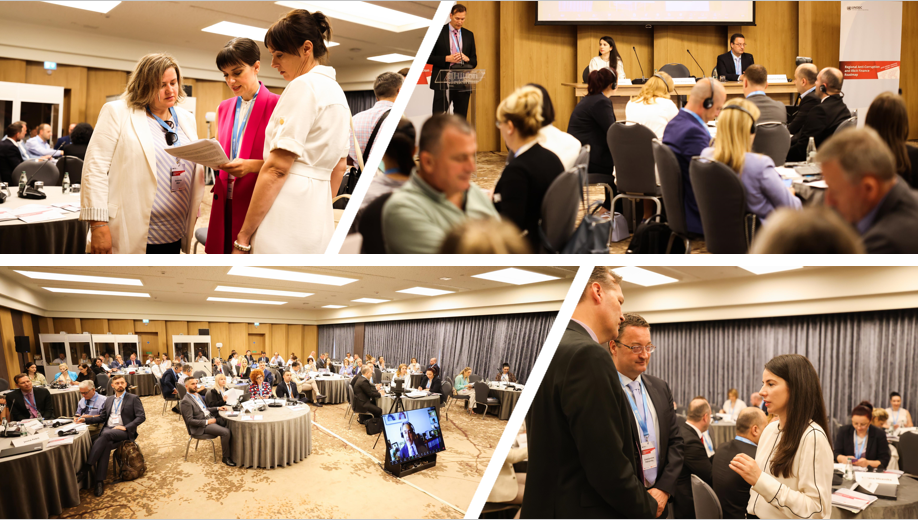Western Balkans Anti-Corruption Platform Agrees on New Priorities to Tackle Corruption and Illicit Finance in the Region
25-27 June, Tirana, Albania: The six Western Balkans’ jurisdictions gathered in Tirana to discuss the success achieved by the 2021-2024 Regional Anti-Corruption and Illicit Finance Roadmap and to agree on new multi-year priorities to better and more efficiently tackle corruption and illicit finance in the region, therefore paving the ground for the continuation of the Regional Platform’s efforts in Fast-Tracking the Implementation of the UN Convention against Corruption (UNCAC).
The conference, which gathered over 70 government officials, stakeholders from the law enforcement and criminal justice sector, representatives from anti-corruption agencies, other anti-corruption practitioners, and representatives of international partners, served to take stock of the Regional Anti-Corruption and Illicit Finance Roadmap and formulated new priorities to address corruption, illicit finance and asset recovery in the Western Balkans and beyond.
Albania’s Minister of State for Anti-Corruption and Public Administration, Adea Pirdeni, opened the event and welcomed the targeted work done under the Regional Anti-Corruption and Illicit Finance Roadmap since 2021 when it was first endorsed. This includes measures to prevent corruption in procurement, strengthen asset declaration systems, and facilitate regional and international cooperation on corruption investigations under the umbrella of the UNODC Global Operational Network of Anti-Corruption Law Enforcement Authorities (GlobE).
During the event, UNODC briefed the audience on the latest developments related to UNCAC implementation at the global level and gave an update on UNODC’s approach to facilitating these efforts through regional platforms. The conference featured two side events to share best practices on the implementation of anti-corruption strategies and the use of information and computer technologies in public procurement.
Following a report from the Secretariat of the Regional Anti-Corruption and Illicit Finance Roadmap and an overview of priorities tentatively identified during previous Roadmap meetings and consultations, the delegations discussed these priorities in working groups agreeing on two new pillars of intervention: 1) prevention of corruption and 2) criminalization, law enforcement support, international cooperation and asset recovery.

According to UNODC Deputy Regional Representative, “the goal of the Regional Anti-Corruption and Illicit Finance Roadmap will remain to deliver tangible improvements to the implementation of existing national anti-corruption/anti-illicit finance measures, and to support implementation of international standards and recommendations, including those from the European Commission’s annual reports with respect to the benchmarks for European Union accession and from the Council of Europe’s Group of States against Corruption.”
The conference offered also the opportunity for the participants and UNODC to discuss and share the concrete steps and technical assistance needs.
During the upcoming period, UNODC, its partners and donors will continue providing support to the implementation of the Regional Anti-Corruption and Illicit Finance Roadmap within the framework of the Regional Platform to Fast-Track UNCAC Implementation and the UNODC Regional Programme for South-Eastern Europe, which includes anti-corruption and asset recovery as key priorities for UNODC engagement in the region.
Activities implemented under the Regional Anti-Corruption and Illicit Finance Roadmap and the organization of the conference were possible through the funding support provided by the Home Office of the United Kingdom and the Kingdom of Denmark.
